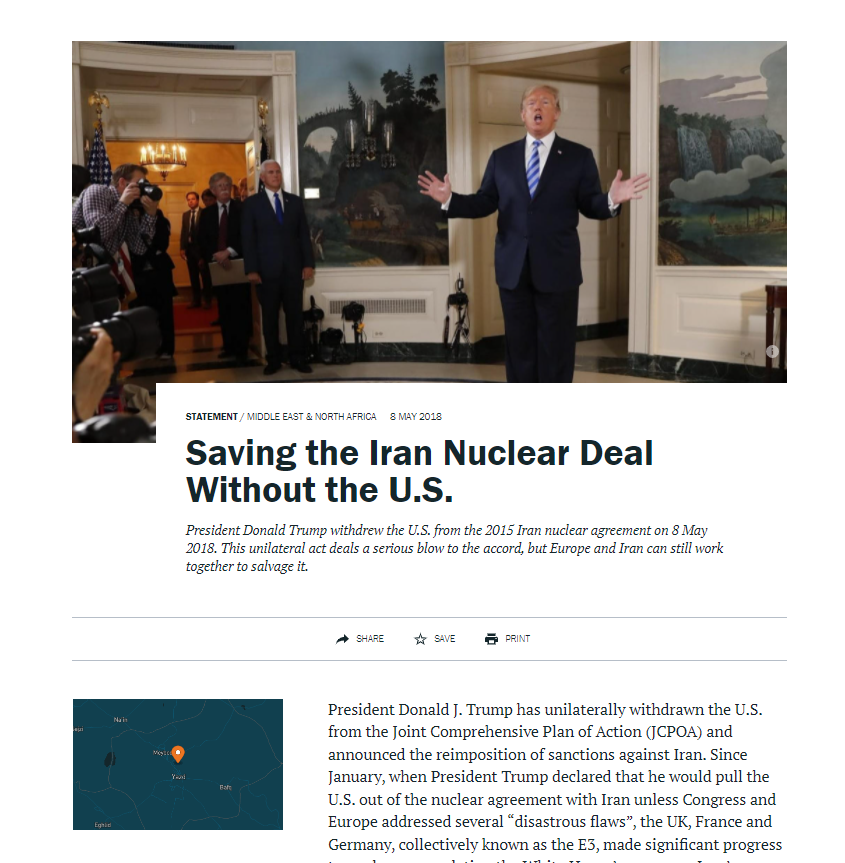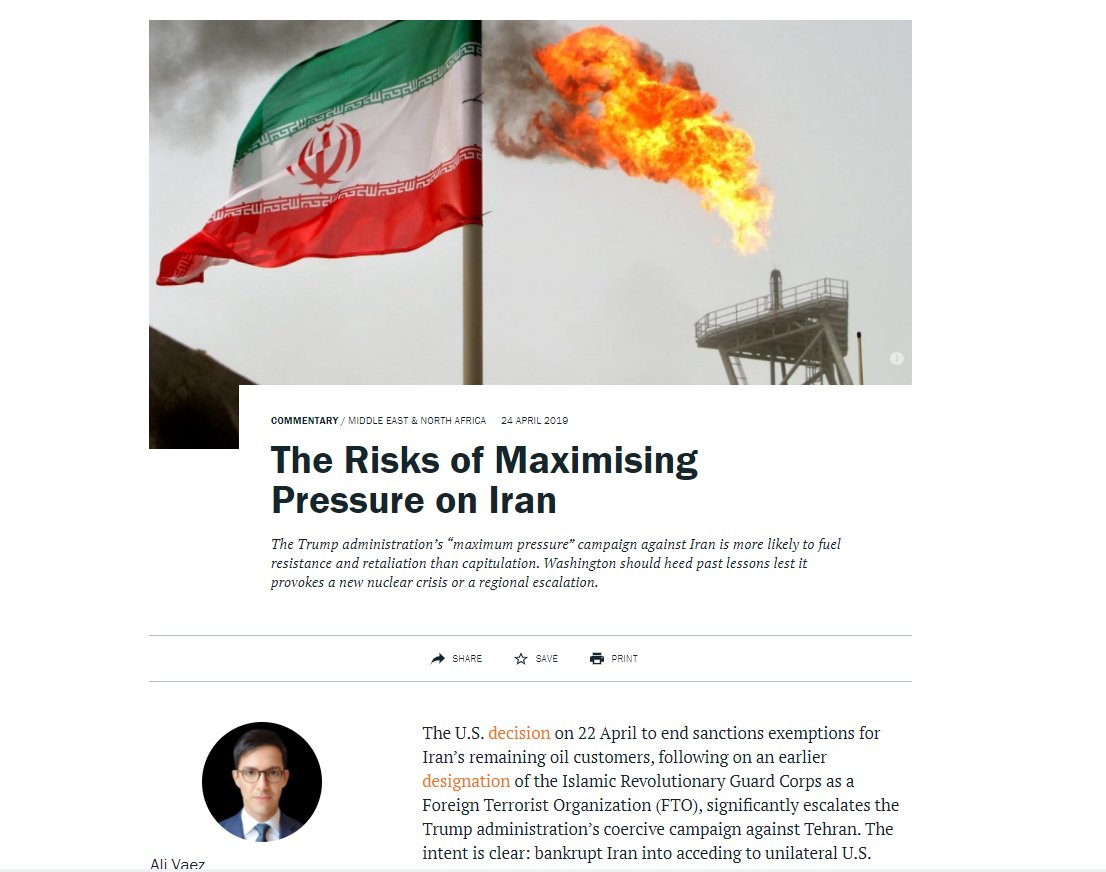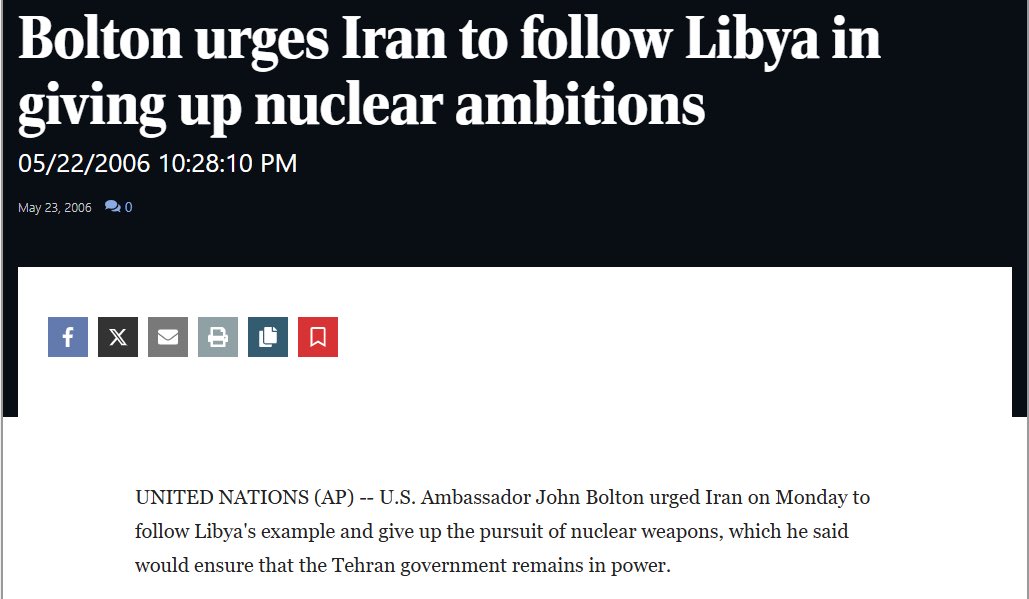بیش از یک دهه است که بر بحران هسته ای ایران تمرکز کرده ام. در این سالها انواع اتهامات به من زده شده: از داماد زاهدی گرفته تا کارمند سیا، از لابی ج.ا. و مشاور ظریف گرفته تا هزاردستان و کارمند سوروس. هرگز اهمیتی به این حرفها و هجمه ها نداده و نمی دهم. اصل مواضع فرد است 1/
مهمترین مواضع من و گروه بحران در سالهای اخیر به این شرح بوده است:
- مخالفت با اقدام ترامپ در تضعیف برجام حتی پیش از خروج آمریکا
2/
- مخالفت با اقدام ترامپ در تضعیف برجام حتی پیش از خروج آمریکا
2/

- سرپرستی جامع ترین پروژه پژوهشی تا به امروز در مورد آثار سوءتحریم ها، شامل تبعات اقتصادی و غیر اقتصادی آنها بر جامعه و محیط زیست ایران
6/
rethinkingiran.com/iran-under-san…
6/
rethinkingiran.com/iran-under-san…

- هشدار به ایران و آمریکا در شرط و شروط گذاشتن برای بازگشت به برجام و زمان را به نفع خود پنداشتن، چراکه زمان و فرصتهای گرانبها را هدر خواهند داد و هر دو با تبعات سوء مواجه خواهند شد.
7/
crisisgroup.org/middle-east-no…
7/
crisisgroup.org/middle-east-no…

- ایراد جدی به دولت بایدن برای نپذیرفتن مسؤلیت آمریکا در بدعهدی و اقدام برای جبران مافات با توجه به خسارت عظیم مالی و جانی سیاست گمراهانه دولت ترامپ
8/

8/


-در مثل مناقشه نیست، ولی انتخاب واژه "صاحبخانه" در مثالی که استفاده کردم بدسلیقگی بود، چرا که آمریکا را طرف قرارداد می دانم، نه صاحبخانه/کدخدا. اما همانطور که هر وقت آمریکا با آتش بازی کرده هشدار داده ام، وقتی هم ایران رویکرد غیرسازنده ای را دنبال کند، دلیلی بر سکوت نمی بینم.
9/
9/
- اصولا خاکستری دیدن دشوار است. مفاهیم سیاه و سفید/ شر و باطل کار تحلیل را ساده تر می کنند. ولی من به رویکرد میانه خود ادامه خواهم داد چرا که تاثیرگزاری ام نتیجه همین رویکرد است، نه اعتبار و یا خدشه ای که جزر و مد فضای مجازی تولید می کند.
پایان/10
پایان/10
• • •
Missing some Tweet in this thread? You can try to
force a refresh

















